What’s the point of a parliament in a direct democracy?
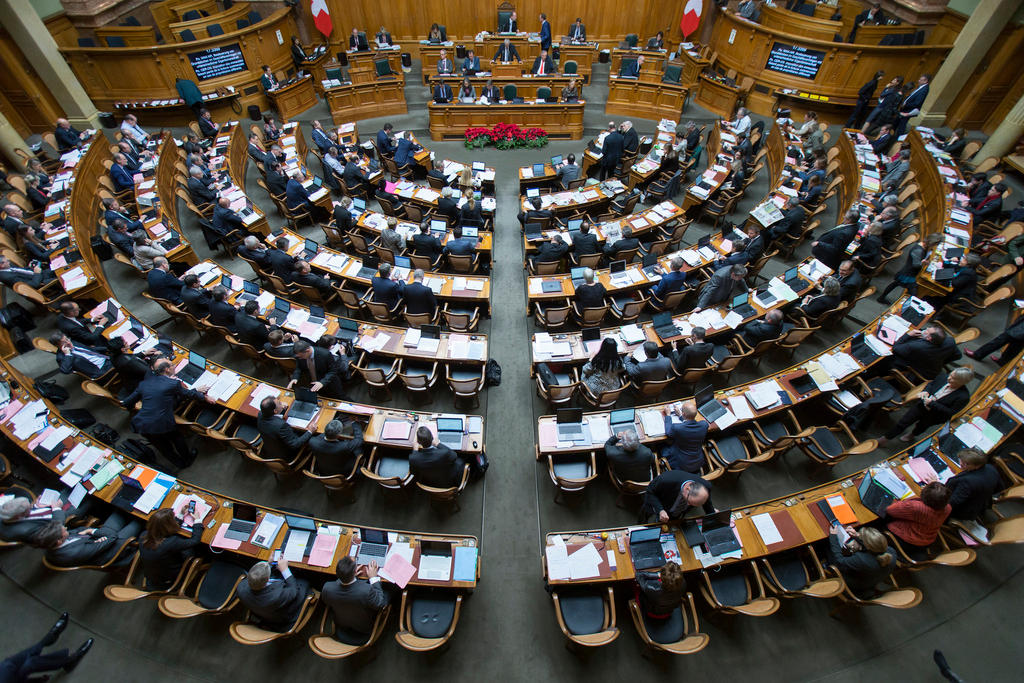
The new Swiss parliament is currently sitting for its first session. But under direct democracy, where the people have the last word on almost all issues, what does the parliament do?
The first clarification to make is that the Swiss system is not a “pure” direct democracy in which popular rights – referendums and initiatives – have existed since time immemorial.
In fact, in modern Switzerland, i.e. the federal state founded in 1848, representative democracy has gone hand in hand with direct democracy, which has in turn developed over the years. For example, it was ‘only’ in 1891 that citizens gained the right to directly propose draft constitutional amendments by means of a people’s initiative.
Complement, not substitute
That said, Swiss popular rights are more widespread at all levels of the state – municipal, cantonal and federal – and are also exercised most intensively than in other countries around the world.
And within this system, direct democracy and representative democracy are not antagonistic but complementary. Although popular rights are central components of the Swiss system, they were never conceived of as substitutes for the parliamentary process, but rather as instruments enabling citizens to monitor the actions of their representatives and possibly block their decisions (referendum) or force them to decide (initiative).

More
How direct democracy has grown over the decades
Legislative power
But the responsibility to legislate rests with parliament. The fact that the vast majority of laws enacted are not contested by referendum shows that law-making power remains firmly in the hands of parliament. Moreover, when laws are put to a referendum, the people rarely contradict the decision made by their elected representatives.
It should, however, be noted that the existence of optional referenda has a strong influence on parliament’s decisions in the first place – one of the important indirect effects of direct democracy. The constant threat of a referendum impels parliamentarians to seek compromise solutions that are likely to win a majority of votes.
Election of other bodies
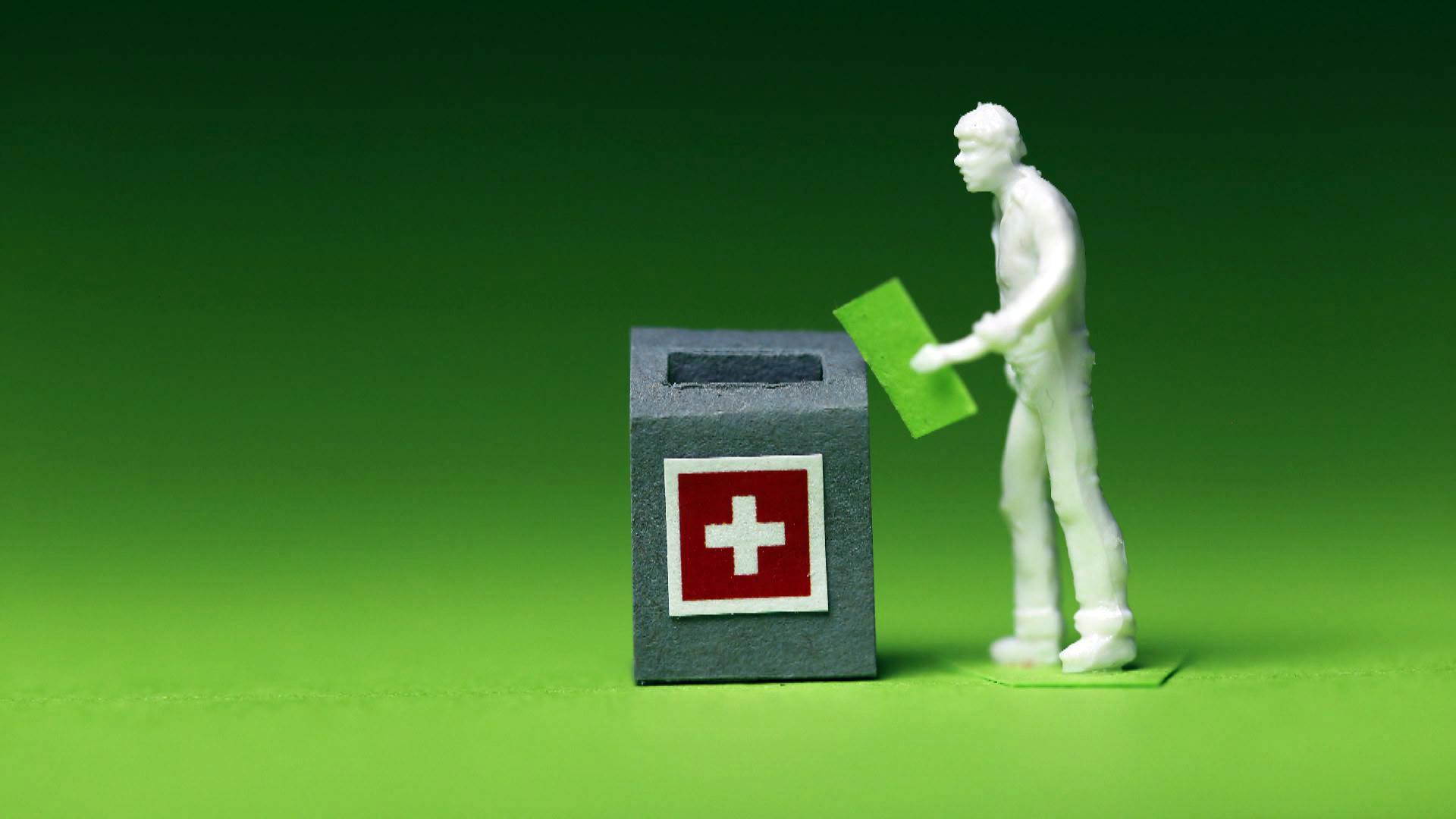
More
What’s a referendum?
Another important prerogative of parliament is electing the seven members of government (the cabinet) and the federal chancellor. The federal assembly, comprising both houses of parliament (the House of Representatives and the Senate), elects them for a four-year term at the beginning of each new legislature (this week, in fact, on December 11).
Also, if one or more members of the cabinet or the federal chancellor resign before the end of their mandate, the Assembly elects a replacement(s) for the remainder of the term.
The federal assembly is also responsible for electing the members of the Swiss federal judiciary: the president and judges of the Federal Court and the judges of the three federal courts of first instance (Criminal Court, Administrative Court and Patent Court).
Parliament also has the power to elect the Attorney General, who heads the federal criminal prosecuting authority. And in case of war, s/he also selects the general who will be the commander-in-chief of the army during the conflict.
Oversight
Parliament’s responsibility also extends to electing the members of the Swiss executive and judicial bodies. It exercises supervisory control over the government and federal administration, as well as over the federal courts and the Attorney General’s Office.
It should lastly not be forgotten that Switzerland’s accounts – both the budget and the final accounts – are submitted to parliament for approval, and that the people have no say on this matter.

More
What lies ahead for Switzerland after the vote?
Translated from Italian by Julia Bassam, swissinfo.ch

In compliance with the JTI standards
More: SWI swissinfo.ch certified by the Journalism Trust Initiative
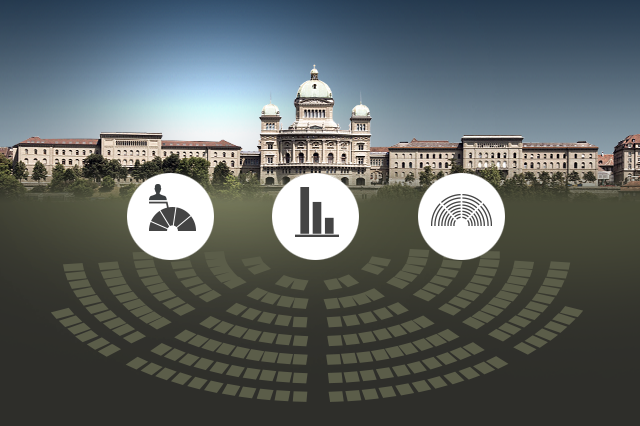
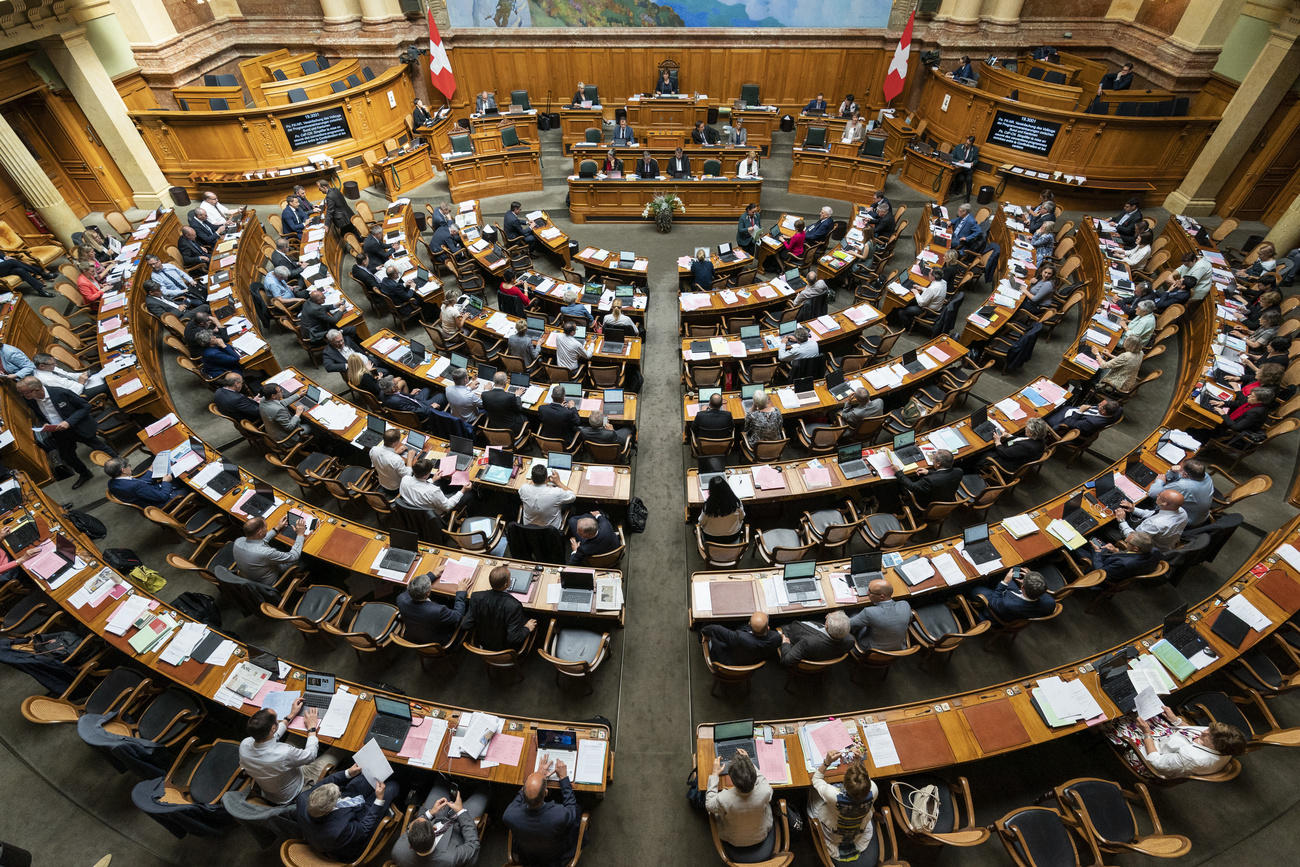
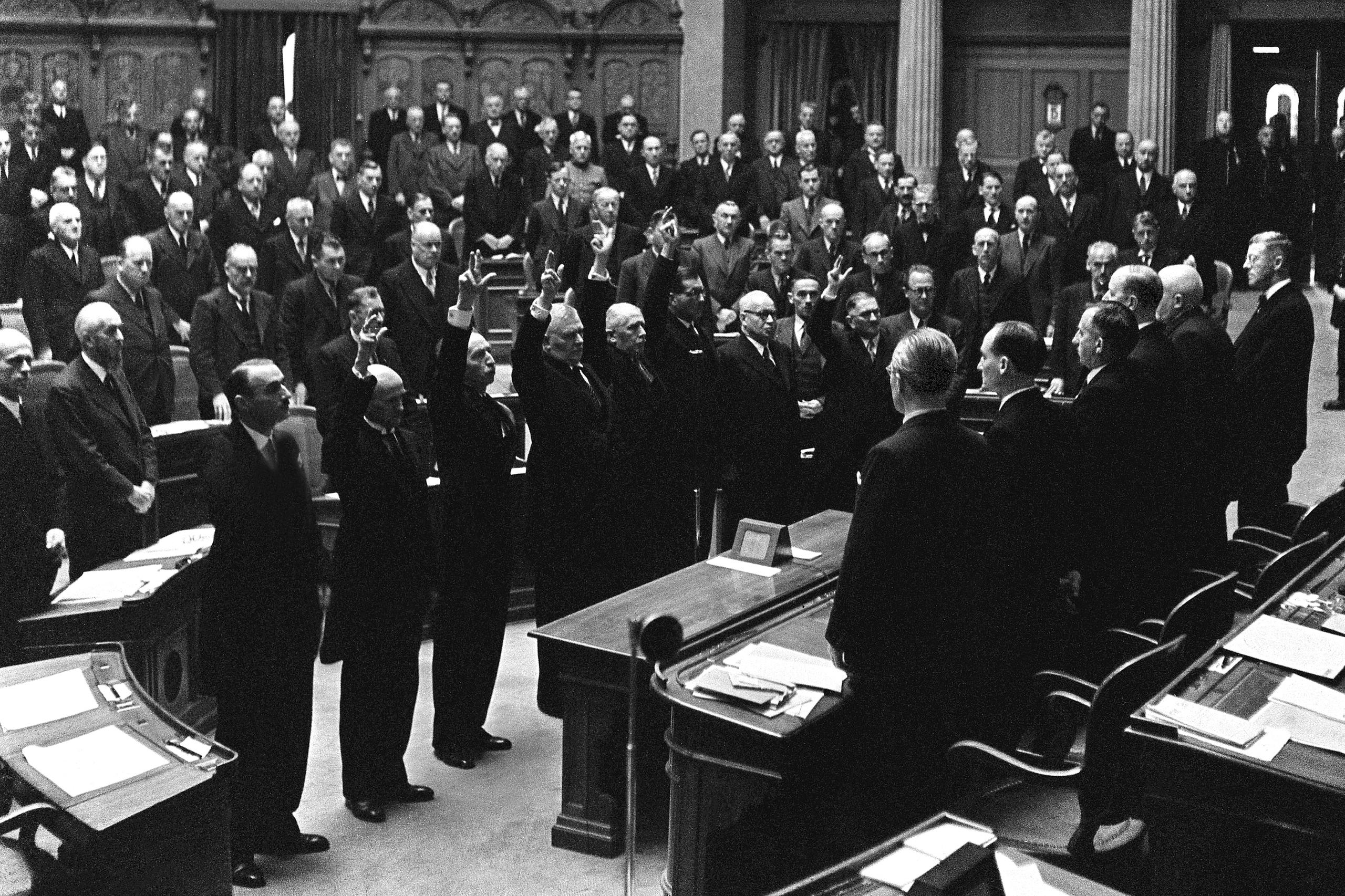
You can find an overview of ongoing debates with our journalists here. Please join us!
If you want to start a conversation about a topic raised in this article or want to report factual errors, email us at english@swissinfo.ch.